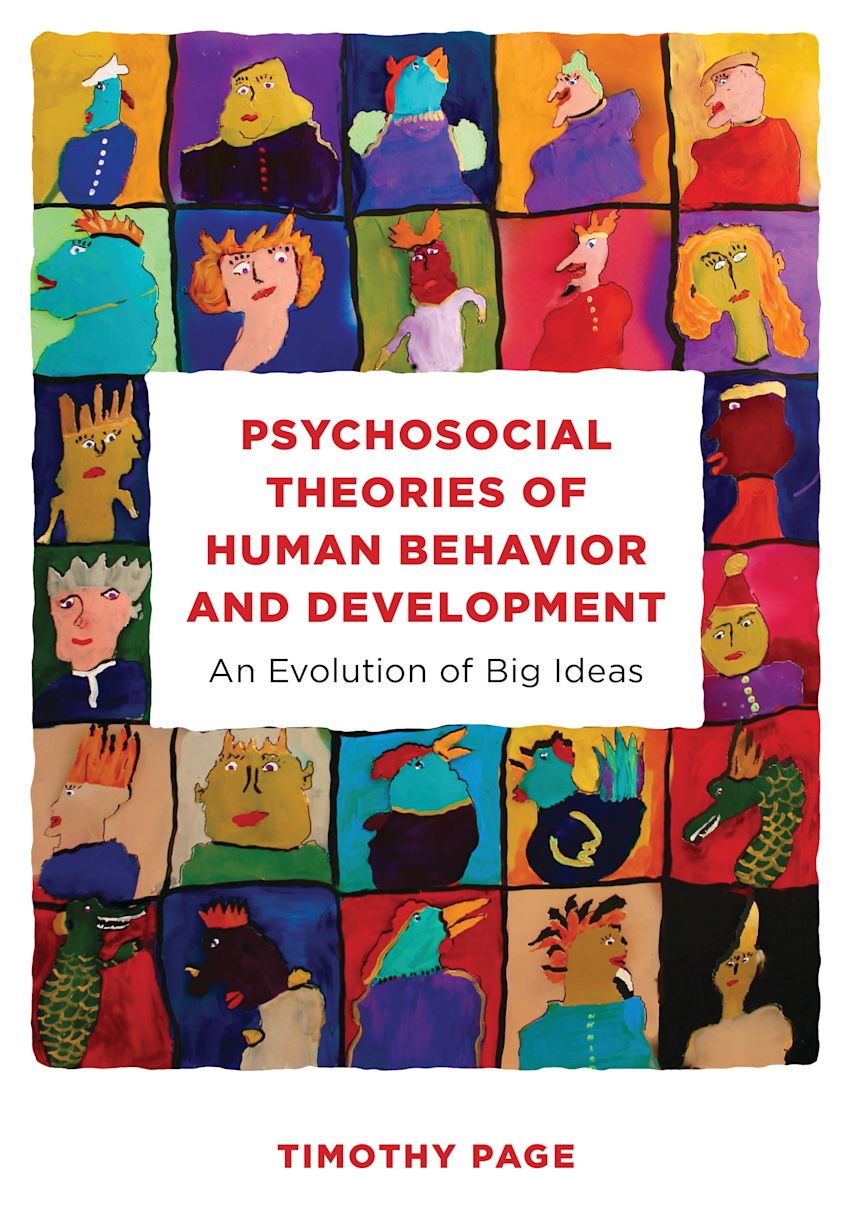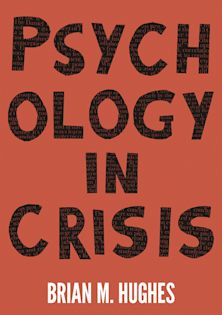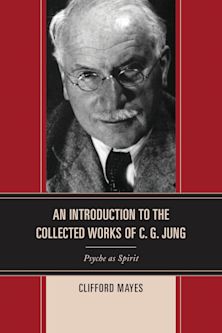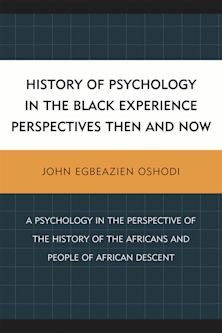Psychosocial Theories of Human Behavior and Development
An Evolution of Big Ideas
- Textbook
Psychosocial Theories of Human Behavior and Development
An Evolution of Big Ideas
- Textbook
This product is usually dispatched within 2-4 weeks
- Delivery and returns info
-
Flat rate of $10.00 for shipping anywhere in Australia
Description
Psychosocial Theories of Human Behavior and Development: An Evolution of Big Ideas is about the major psychosocial theories of human development that were created in the 20th century, drawing from the diverse disciplines of developmental psychology, psychiatry, cognitive science, social psychology, sociology, ethology, and neuroscience. A central focus concerns the components of psychological and social development that motivate and influence human behavior over the lifespan. The evolution of the major ideas over time, their integration, and the ways in which their emergence was shaped by their mutual influences is emphasized throughout. Several integrative themes are used to provide linkages and contexts for the emergence of the theories, particularly the social influences on scientific discoveries, the integrative theoretical framework from the National Research Council, referred to as the transactional-ecological model, and an emphasis on the historical evolution of the sources of knowledge on which the theories were based. A major goal of the book is to teach, in addition to the major concepts of growth and development, the historical scientific and social processes by which these organizations of concepts came into being. This integrative discussion creates important opportunities for more critical analysis and synthesis of ideas.
Table of Contents
Chapter 1: Social Science in Social Contexts
The Systematic Measurement of Social Reality
A Typology of Sources of Knowledge
Thomas Kuhn’s Theory of Paradigm Change
Social Constructions of Reality
Contemporary Efforts Toward Theory Integration: The Transactional-Ecological Model
Chapter 2: Freudian Psychoanalytic Theory
Consciousness, The Unconscious, and Defense
The Structural Model of Personality
Theory of Psychosexual Development
Applications to a Theory of Psychopathology
The Question of the Death Instinct
Later Modifications of Theories of Anxiety and Trauma
Discussion
Chapter 3: Psychoanalytic Revisionists
The Will Psychology of Otto Rank
The Individual Psychology of Alfred Alder
The Emergence of a More Explicit Ego Psychology: Heinz Hartmann
Object Relations Theories
Discussion
Chapter 4: Eriksonian Theory
The Epigenetic Stage Model of Psychosocial Development
Discussion
Chapter 5: Behaviorism: A Physiology of Learning
Foundation and Early Years: Watson’s Behavioral Manifesto
The Purposive Behaviorism of Edward Tolman
The Radical Behaviorism of B.F. Skinner
Social Group Behavior from the Behaviorist Perspective
Discussion
Chapter 6: Piagetian Theory
Early Years and Influences
Sensorimotor Challenges and Achievements
The Transition from the Sensorimotor Toward the Representational
Preoperatory Period
Concrete Operations, a Transition in Logico-Mathematical Capacities
Formal Thought
Discussion
Chapter 7: Social Psychological Theories
The Socio-Physiological Theories of George H. Mead
The Field Theory of Kurt Lewin
The Structural-Functional Theory of Social Organization of Talcott Parsons
The Dramaturgical Theory of Social Behavior of Erving Goffman
Chapter Discussion
Chapter 8: Humanistic Psychology
The Original Insights of Kurt Goldstein
The Emergence of the Third Force
Empirical Critique of the Developmental Significance of Self-Actualization
Neurobiology
Discussion
Chapter 9: Social Cognition
Perceptions of Others, Stereotypes, and Prejudices
Theory of Mind and Reflective Function
The Cognition of Emotion
Consciousness and Unconsciousness
Memory and Social Cognitive Functions
Self-Schemas
Conceptual Models of Cognition and Personality
The Nature of Motivations, Beginning with the Motive to Belong
Values
Moral Development
A Brief Sampling of the Neurobiology of Various Cognitive Processes
Discussion
Chapter 10: Social Ecological Theory
Bronfenbrenner’s Early Life and Foundations of the Theory
Biological Systems Level
Microsystems
Mesosystems
Exosystems
Macrosystems
Chronosystem Influences
Discussion
Chapter 11: Ethological Theories
The Pioneering Research of Konrad Lorenz
Attachment Theory
Affective Neuroscience
Social Dominance
Chapter Discussion
Chapter 12: Review and Reflections
The Question of Motivation
The Unique Significance of Original Vulnerability
Belonging and Tension
The Representational Realm of Experience and the Significance of Field Theory
Emotion as Basic Motivation and Driver of Maturation
The Integration of Field Theory and Affective Neuroscience
The Complementarity of Personal and Social Identities
The Liabilities of Intelligence and the Assertion of Social Power
Self-Representations and the Control of Space and Power
The Question of Will Revisited
References
Index
About the Author
Product details
| Published | 20 Aug 2024 |
|---|---|
| Format | Paperback |
| Edition | 1st |
| Extent | 440 |
| ISBN | 9781538194355 |
| Imprint | Rowman & Littlefield |
| Illustrations | 6 BW Illustrations, 8 Tables, 3 Textboxes |
| Dimensions | 255 x 177 mm |
| Publisher | Bloomsbury Publishing |
Reviews



































